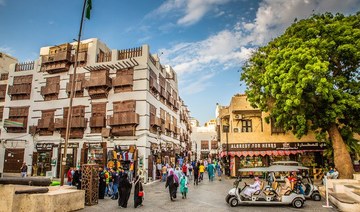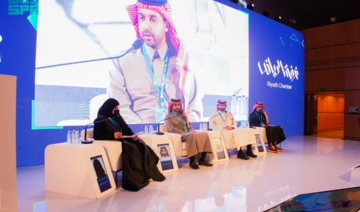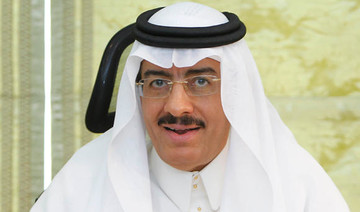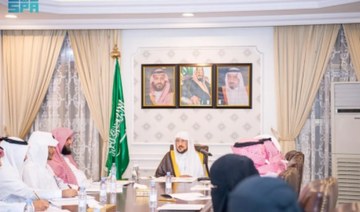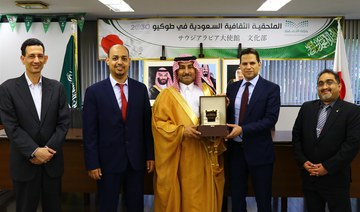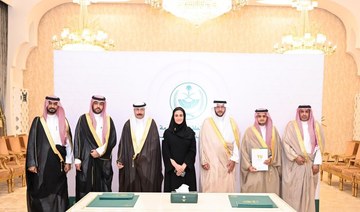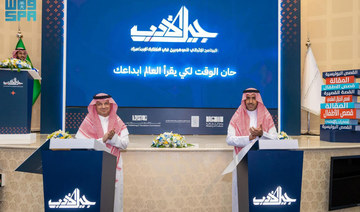RIYADH: The King Abdul Aziz Foundation for Research and Archives (Darah) has published highlights of Jeddah’s heritage since the pre-Islamic era and the use of the city as a port for Makkah by Caliph Uthman ibn Affan in 647.
Darah documented the era’s buildings, neighborhoods, balconies and windows, found in the architecture of the “Historical Jeddah” area, on its Twitter account.
Those characteristics are still being appreciated, making Jeddah an open museum that was added to UNESCO’s World Heritage Sites list in 2014.
While documenting the establishment and unification of the Kingdom, Darah mentioned the arrival of King Abdul Aziz to Jeddah in 1925, where he stayed in the house of Nassif and used a council room and a prayer room next to Al-Hanafi Mosque.
The city became a large one and became the gate of the two holy mosques and the Kingdom’s first port.
Darah highlighted the area’s important heritage and historical sites and buildings such as historical mosques of unique architectural style, in addition to the city’s markets.
Jeddah’s wall was built by Hussein Al-Kurdi, one of the Mamluk princes, during his campaign to fortify the Red Sea against attacks by the Portuguese.
He equipped the wall with fortresses, towers and cannons to stop invading ships and dug a trench around the wall.
Darah noted that the wall, which was built with the help of Jeddah’s residents, had two doors, one from the side of Makkah and the other from the side of the Red Sea. It also had six towers each with 16 branches. Six doors were built — Bab Makkah, Bab Madinah, Bab Sharif, Bab Jadid, Bab Al-Bant and Bab Al-Magharibah — before Bab of Al-Siba was added at the beginning of this century.
The wall was torn down because it merged with the urban area in 1947.
The city was divided into several neighborhoods inside the perimeter of the wall called “Hara.” These were named according to their geographical location inside the city by the events that made them famous: Harat Al-Mazloum, Al-Sham, Al-Yaman, Al-Bahr and Al-Karantina.
The city’s residents built their houses from rocks they extracted from the 40th lake before modifying them by hand to fit according to their sizes next to the wood they brought from neighboring areas such as the Valley of Fatima or imported from other countries, mainly India.
They used the contents from the Sea of Mud to strengthen the structure.
These houses look a lot like modern cement buildings. Some of the famous buildings still found today are the houses of Al-Nassif, of Al-Jamjoum, Al-Baesh, Al-Kabel, Al-Banaja, Al-Azahed and Al-Sharbatli.
Darah also documented the most famous mosques in Jeddah’s historical area such as Al-Shafei Mosque, Uthman ibn Affan Mosque, Al-Basha Mosque, Akkash Mosque, Al-Memar Mosque, Al-Rahma Mosque, King Saud Mosque, Al-Jaffali Moque and Hassan Anani Mosque.
The old neighborhoods still carry a touch of the past and are surrounded by old handicraft and traditional shops. Significant public markets in the historical area include Al-Alawi Market, Kabel Market and Al-Nada Market.
Some of the most important specialized markets in Jeddah’s historical area are the fish market, also known as Al-Banqala, the vegetable and butcher’s market in Al-Nawariyyah at the end of Kabel Street, the large fabric market, Al-Khaskiyah, located behind Sheikh Mohammed Nassif’s house, Al-Nada Market, Al-Jami, named after Al-Shafei Mosque, Al-Hababa Market located in Bab Makkah, Al-Hiraj auction Market in Bab Sharif, Al-Badou (Bedouin) market in Bab Makkah, Al-Aser in Bab Sharif, Al-Baraghiyah, where donkey, mule and horse saddles were made, and Al-Sabhiyah in Al-Khaskiyah where prayer beads were made.
Jeddah was also known for its “Khanat” (“Al-Kaysariyah”) — markets made up of a number of small shops.
Some of the most important “Khanat” of Jeddah’s historical area are Khan Al-Hunud, Khan Al-Kasaba, where fabrics were sold, Khan Al-Dallalin and Khan Al-Attarin.
Jeddah’s traditions and its people still unite loved ones — residents decorate their houses with lights while others chant to welcome visitors.
These traditions represent Jeddah’s beauty on religious occasions such as the holy month of Ramadan, especially in the central historical area.
Different phases of Jeddah’s rich history under spotlight
Different phases of Jeddah’s rich history under spotlight
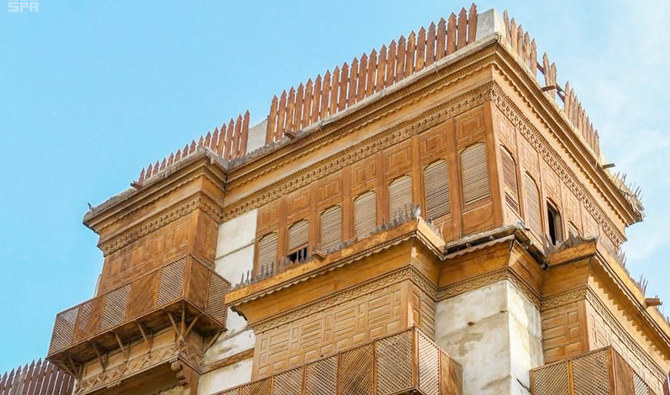
- The Red Sea port city was added to UNESCO’s World Hertitage Sites list in 2015
Excavators held for violating water system

- The discovery was made during field tours carried out by the water department
TUBARJAL: The Al-Jouf branch of the Saudi Ministry of Environment, Water and Agriculture has apprehended three excavators who were found to be violating the water system in Tubarjal.
The discovery was made during field tours carried out by the water department, in cooperation with the competent authorities in the governorate.
Separately, authorities in Addayer in the Jazan region have arrested seven Ethiopians for smuggling 105 kg of hashish. Legal procedures have been completed against the offenders who were handed over, along with the seized items, to the competent authority.
Border guard patrols in the Al-Harth area of Jazan have also foiled an attempt to smuggle 71 kg of hashish, with initial legal procedures completed and the find handed over to the competent authority.
Security authorities have reiterated their appeal for citizens and residents to report any information regarding drug smuggling or selling by calling 911 in Makkah, Riyadh, and the Eastern Region, and 999 in the rest of the Kingdom’s regions.
Those with information may also contact the General Directorate of Narcotics Control at 995 or at [email protected].
Direct KSA to Iraq flight routes announced
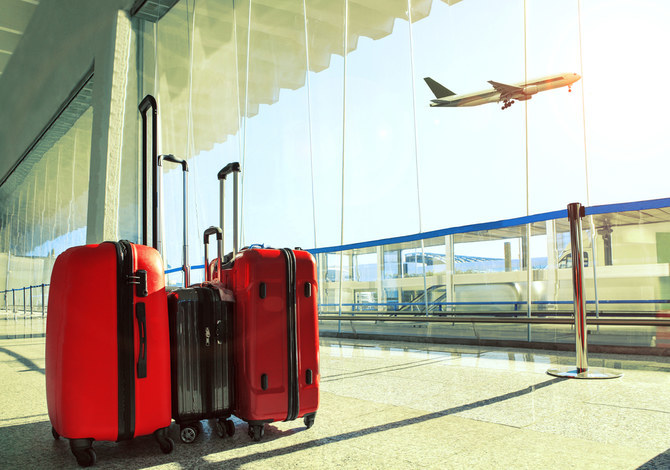
- These flights, along with flights to Baghdad and Irbil, will commence from June 1.
RIYADH: The Saudi General Authority of Civil Aviation announced the launch of direct flights from Dammam to Najaf, the Saudi Press Agency reported on Friday.
The decision is in line with the Kingdom’s national aviation sector strategy, aimed at doubling capacity to accommodate over 330 million passengers annually, and extending services to more than 250 global destinations.
These flights, along with flights to Baghdad and Irbil, will commence from June 1.
Ministry of Hajj and Umrah praises Iraqi authorities for arresting fraudsters touting fake Hajj trips
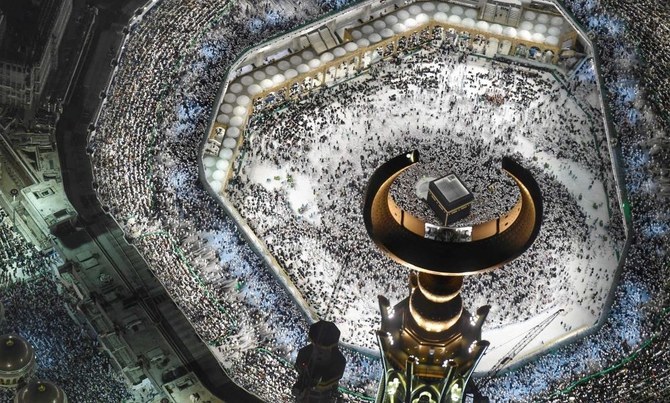
- A ministry source in the statement also warned prospective pilgrims to beware of unauthorized Hajj offers being promoted this year
- The ministry made it clear that visas for Umrah, tourism, work, family visits, transit, and other categories do not grant eligibility to perform Hajj
RIYADH: The Ministry of Hajj and Umrah expressed its gratitude for actions taken by the Supreme Commission for Hajj and Umrah in the Republic of Iraq that resulted in the prosecution of more than 25 companies fraudulently engaged in commercial Hajj operations.
A ministry source in the statement also warned prospective pilgrims to beware of unauthorized Hajj offers being promoted this year, primarily through social media.
Participation in Hajj requires pilgrims to obtain a legitimate Hajj visa issued by the authorities in the Kingdom in coordination with Hajj affairs offices in their respective countries, or via the Nusuk Hajj platform for those countries that do not have an official Hajj office.
The source said that the Ministry of Hajj and Umrah is monitoring advertisements from companies and campaigns, as well as identifying fake accounts on social networks allegedly offering Hajj packages at enticing prices.
The ministry made it clear that visas for Umrah, tourism, work, family visits, transit, and other categories do not grant eligibility to perform Hajj. It urged pilgrims to be careful not to fall victim to companies and others claiming to offer commercial Hajj campaigns or other misleading initiatives.
“Regulations must be followed and legally documented permits, as represented by the official Hajj visa, must be issued, so a safe, secure, well-managed Hajj program and fair representation to all nationalities is provided,” Mohsen Tutla, head of the World Hajj and Umrah Convention, told Arab News.
“Hajj is a mega event with more than 2 million worshippers. Can one imagine, if order was not imposed and (the event) not regulated, chaos would ensue,” he added.
In the statement, the ministry calls for everyone’s cooperation to help combat and report fraudulent companies and campaigns, and to seek information only by visiting its official website and engaging with its channels on social networks.
World’s largest Arabic opera opens in Riyadh
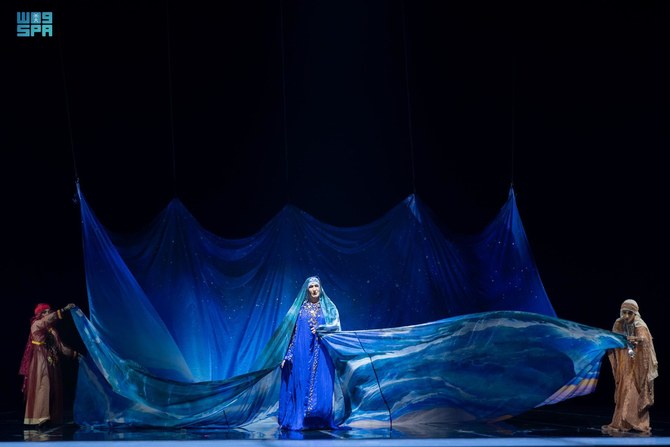
- The opera was produced by the Saudi Theater and Performing Arts Commission
RIYADH: “Zarqa Al-Yamama,” the world’s first and largest grand opera in Arabic, made its debut at the King Fahad Cultural Center in Riyadh, taking the audience on a lyrical journey through one of the best-known folkloric tales in the Arabian Peninsula.
The opera was produced by the Saudi Theater and Performing Arts Commission, and will run until May 4, telling the story of the central character’s attempts to warn her Jadis tribe of an imminent invasion.
Saudi chemistry duo add to KSA medal haul
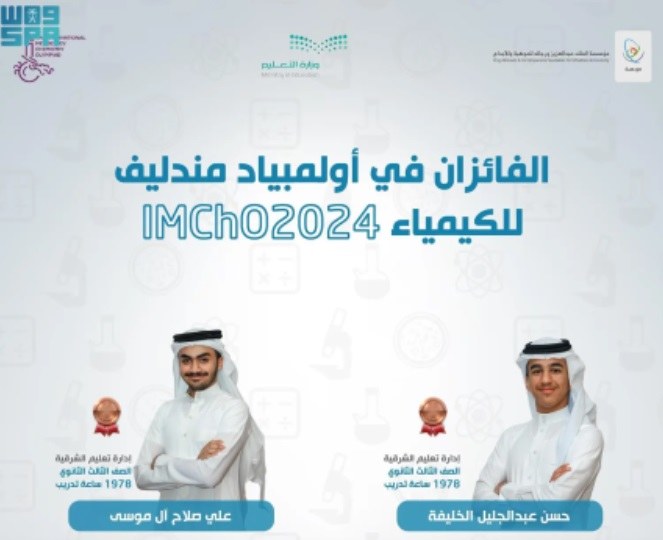
- Team members were selected by Mawhiba
RIYADH: Two Saudi students have added to the Kingdom’s medal haul at the 2024 Mendeleev International Chemistry Olympiad being held in China from April 20-27.
Hassan Abdul Jalil Al-Khalifa, a third-grade secondary student from the Provincial Department of Education, Eastern Province, and fellow student Ali Salah Al-Moussa claimed bronze medals at the competition, lifting the Kingdom’s overall tally to three silver and 20 bronze.
More than 150 students from 27 countries are competing at the 58th session of the Olympiad.
Saudi Arabia is represented by a team of six students from several educational institutions.
Team members were selected by the King Abdulaziz and his Companions Foundation for Giftedness and Creativity, also known as Mawhiba.
Students were chosen after attending a series of forums over the course of two years, and were trained by Mawhiba, in partnership with the King Abdullah University of Science and Technology.






